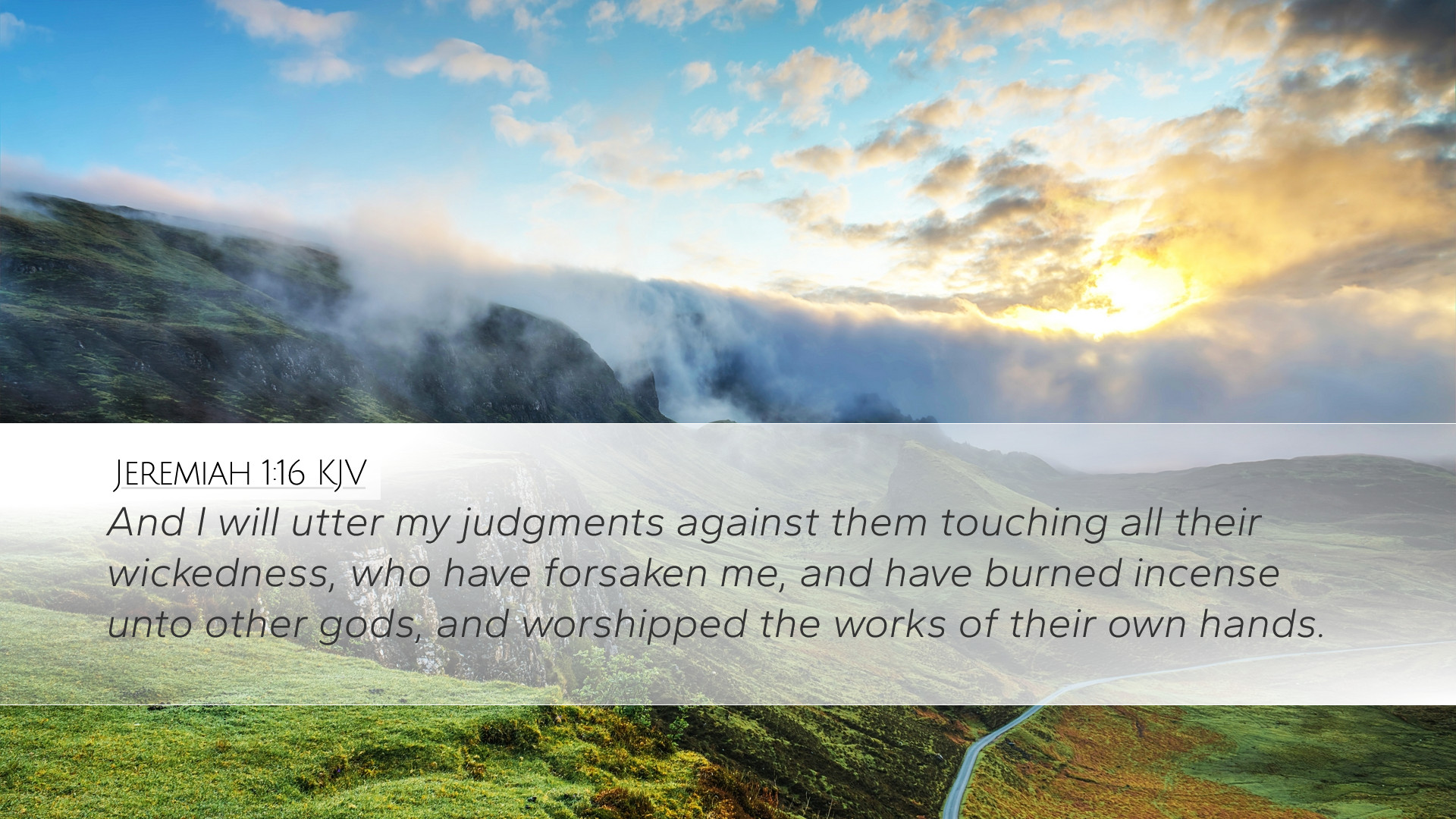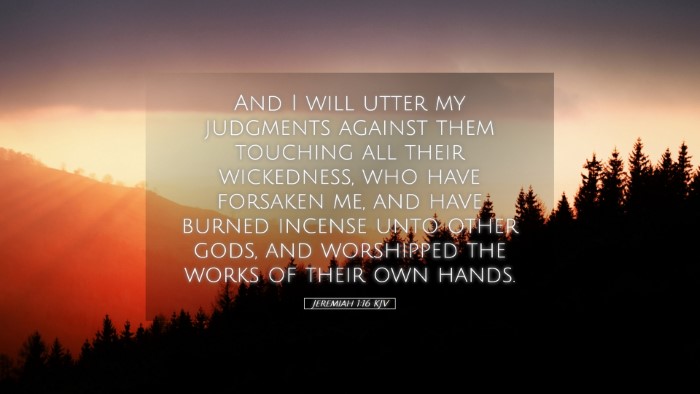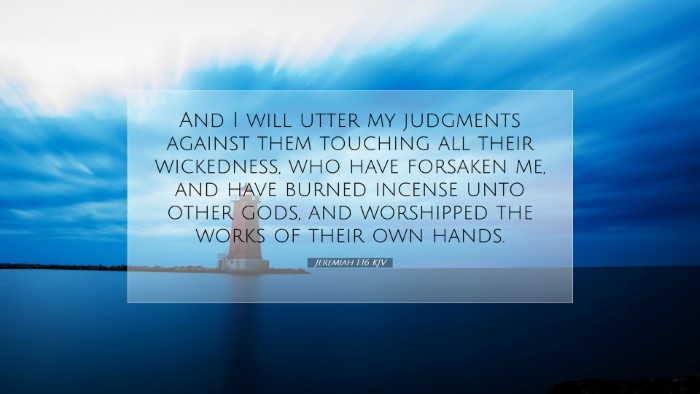Commentary on Jeremiah 1:16
Jeremiah 1:16 states: "And I will utter my judgments against them touching all their wickedness, who have forsaken me, and have burned incense unto other gods, and worshipped the works of their own hands." This verse serves as a pivotal point in understanding not only the prophetic mission of Jeremiah but also the overarching theme of God's justice and righteousness in the face of Israel's idolatry.
Contextual Analysis
To fully grasp the weight of this verse, we must first examine its context within the Book of Jeremiah as a whole. Jeremiah, often referred to as the weeping prophet, addresses the moral decay and spiritual apostasy of Judah. The historical backdrop places us in a time of impending judgment due to the nation's persistent disobedience to God's commands.
Historical Background
During the lifetime of Jeremiah, Judah faced significant threats from external powers, primarily Babylon. Jeremiah's prophetic messages warned God's people of the consequences of their idolatry and immorality, calling them to repentance before the inevitable divine judgment.
Theological Insights
In this verse, we see the judgment of God as a direct response to the wickedness of His people. The term "utter my judgments" indicates God's active participation in addressing Israel's sins. This divine pronouncement transcends mere human evaluation of morality; it embodies God's holiness and justice.
Wickedness Defined
The "wickedness" mentioned here pertains to the actions that have led the people away from their covenant relationship with God. Matthew Henry articulates that forsaking God leads to the worship of "other gods"—a plea against idolatry that was rampant in Israel. This highlights a fundamental issue: the misplaced devotion towards creations rather than the Creator.
Idolatry and its Consequences
Albert Barnes emphasizes the severe consequences of idolatry. The worship of entities crafted by one's own hands signals a rebellion against the very essence of God's nature. When people turn to "the works of their own hands," they reject the divine intention behind their existence, leading to inevitable ruin. This reflects a broader theological principle of autonomy versus divine sovereignty—human beings attempting to control their fate outside of God's will.
Application for Modern Believers
For contemporary readers, this verse summons an introspection regarding personal and communal idolatry. The messages conveyed through the verse resonate through the ages, urging believers to evaluate their allegiances and the objects of their worship.
Repentance as a Pathway
According to Adam Clarke, God’s pronouncement of judgment is also an invitation to repentance. The "judgments" themselves are not merely punitive but also serve as a means to encourage a return to righteousness. This bears therapeutic implications; reflecting on our lives in the light of God's word can lead to renewal and restoration.
Divine Justice vs. Human Rebellion
This passage illustrates the tension between divine justice and human rebellion. The phrase "who have forsaken me" speaks to the human tendency to stray from God, often spurred by cultural influences or personal desires. The justice of God is not arbitrary; it stems from a covenant relationship where there are expectations and responsibilities.
The Role of the Prophet
Jeremiah's role as a prophet becomes critical here. His task is not merely to deliver messages of doom but to emphasize God’s desire for restoration. Pastors and leaders today can learn from Jeremiah's example, as they too are called to balance messages of judgment with hope and reconciliation.
Conclusion
Jeremiah 1:16 stands as a powerful reminder of the consequences of idolatry and the call to return to God. It invites pastors, students, and theologians to delve deeper into the nature of sin and the righteousness of God in addressing it. By combining insights from Henry, Barnes, and Clarke, we arrive at a holistic understanding of the text that challenges believers to reflect on their allegiance and encourages a heartfelt return to the worship of the One true God.


